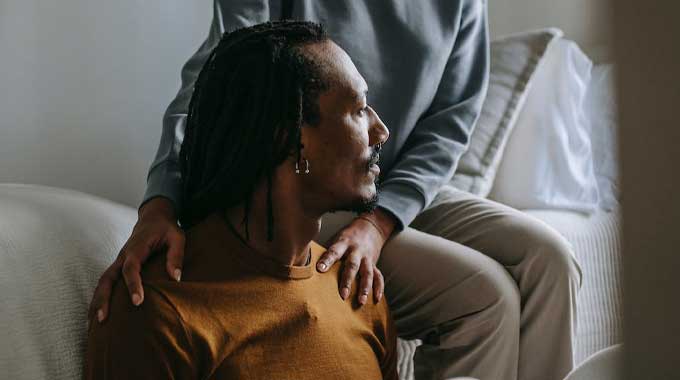Re-joining our families after substance abuse treatment can feel overwhelming. It’s not just your health and mental well-being that’s harmed by substance use – it’s also your interpersonal relationships. During active addiction, many of us do things we would never dream of doing sober, and it’s very common for people to steal from or deceive family members to maintain their habit.
In the throes of addiction, you might have become unrecognizable to your family. However, just as our bodies and minds can heal themselves, we can also fix our broken relationships, atone for past actions, and work towards a more positive future.
While realizing your addiction caused the people closest to you pain, obsessing over feelings of shame can lead you down a road of negative thinking. This blog will explain how best to rejoin your family after you’ve graduated from treatment, how to mend broken bridges, and how to stay safe and maintain healthy boundaries.
Fail to Prepare, Prepare to Fail – Make Sure You Plan Ahead
Drug treatment isn’t just about breaking the physical hold substances have over you. It’s a time to reflect on what’s important to you and look at how your past may have influenced your present-day situation. It’s also a time to think about the future and use the support and expertise of the trained professionals around you to plan your ongoing sobriety.The family unit is extremely important for recovery, and most centers offer some sort of family-based counseling in their treatment plans. During your stay, you’ll learn what triggers your addiction, and family therapy can help minimize your exposure to these scenarios. While our families never want us to relapse, expecting them to telepathically understand the inner workings of our brains is a tall order. What might seem safe or normal to them could seriously threaten your recovery, and family therapy is a time for you to safely communicate your needs to them in a controlled environment.
Making Amends
Family therapy is also a place to make amends for your past actions. This can seem daunting, but it is an excellent opportunity for them to voice their feelings and experiences with you in a compassionate and non-judgemental environment. You’ll have the support of the trained counselors and your treatment peers to prop you up if it’s difficult emotionally. Some tips for making amends are:
- Tell your family what you intend to do in the future, as well as apologizing for past mistakes. This could include outpatient treatment programs or attending support groups such as Narcotics Anonymous or Alcoholics Anonymous.
- Ask them how they feel – don’t assume you know what they went through. We can become very blinkered during addiction and often don’t pick up on things we otherwise would. It may be difficult to hear, but open, two-way communication allows everyone to be heard.
- Be ready for people to stay angry with you – they are going through their own process, and forgiveness takes time.
Communicating Personal Boundaries
Relationships with family members can often be complicated. Although we love them, we don’t always see eye to eye, and it is possible to be apologetic while making sure your needs are met. After all, your health, well-being, and potentially your life hinges on you maintaining your sobriety.
If you have a family member who triggers your addictive behaviors, it’s essential to communicate that with them. It’s always more helpful to tell them how their actions affect you rather than offering up ultimatums. Let them decide to help you instead of feeling backed into a corner – most people will respect your wishes.
If you have family members who drink or use drugs, ask them to abstain if you are present. They might not know or understand how risky it is for you and will usually be glad to help. However, if it’s easier, remove yourself from situations where you feel compromised – there is no need to people-please. We can’t always control other people, but we can control our own actions.
Staying Safe
Your recovery from addiction is always the most important thing. While your family will want you to get better, they don’t always know what’s best for you. In early recovery, it’s your responsibility to be as open and communicative as possible, so they know how to help you.
Repairing the damage of addiction takes time, so be prepared for residual mistrust. Remember that the best amends is living by your words – when your family sees you achieving what you told them you would, everyone will be happy.






